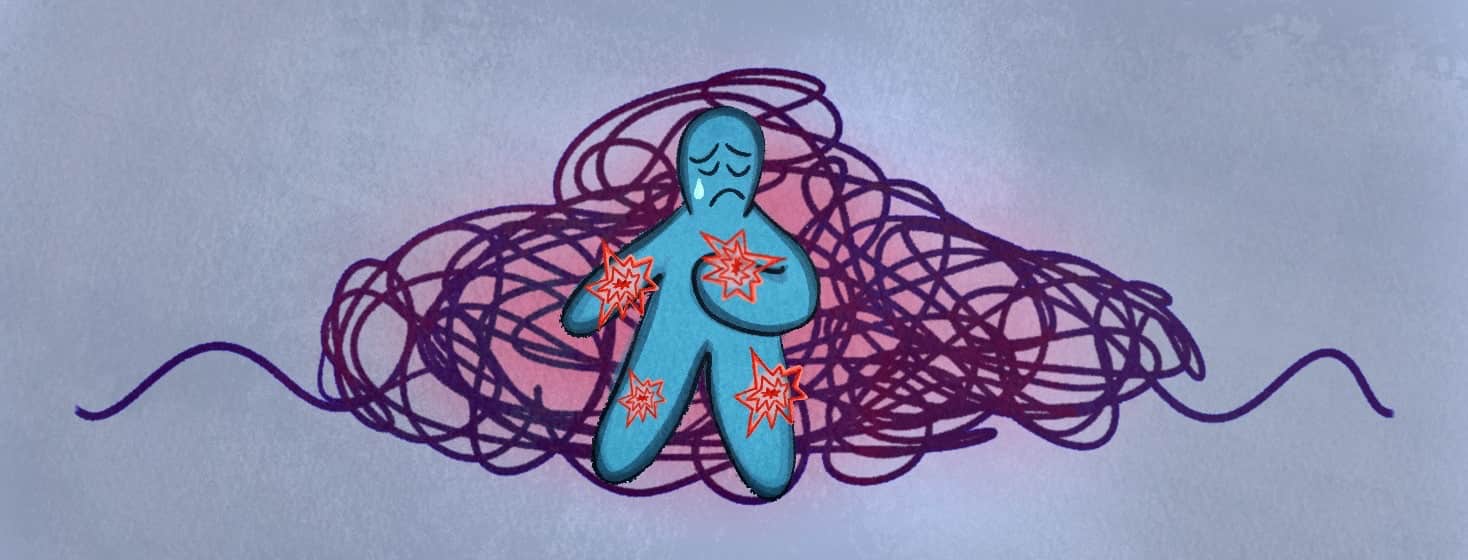Grief and Physical Pain
I used to work in a nursing home. It was filled with older residents, many of whom had served in World War II.
On some workdays, the nursing home was a center of pure joy and excitement. The laughter and wisdom of the residents was remarkable. Yet on other days, when we lost our beloved patients who had become dear friends, the grief was almost too much to bear.
Grief causing pain
I developed pelvic pain during those years. It was searing on some days, dull and throbbing on others, but I felt as though I had a constant urinary tract infection. I went to several specialists who ran many tests. Strangely, there were no bacteria in my urine, and no masses or fibroids hiding within my pelvis. In short, there was no physical explanation for my pain.
It was not until I was forced to resign from my job at the nursing home that I discovered why this pain had been lurking in me. Fast forward several years, when I became a specialist in the muscles of the pelvis as part of my role as a physical therapist. It was only then I realized what grief can do to our bodies and our perception of physical pain.
An enormous role
I have treated young women who lived through abuse as children and later develop terrible vaginal pain; young members of the military with unrelenting low back pain after losing platoon mates in Iraq; and people who had lost family members and felt the same kind of mysterious pelvic pain that I once did.
I remembered weeping in the bathroom as I tried to pee, and I realized grief had played a huge role in my own pain. I can not be the only person to have experienced this, I thought. Since then, I have found many other people who proved my theory. The U.S. Department of Veterans Affairs has talked about this as well, especially when it comes to soldiers returning from war. It reports that grief can cause weakness and immune system changes, among other physical symptoms.1
Cancer is a scary word
Physical pain can go along with a diagnosis of prostate cancer. For those who have lived through prostatectomies, there can be pain or soreness in the early stages of healing. For those who have had radiation therapy for prostate cancer, there can be pain with bowel movements.2
While we sometimes know the reasons for our physical pain, there is still so much to explore about the role of grief in a cancer diagnosis.
Cancer is a scary word. And with it comes the body’s fear response. What we now know is that grief can result in physical pain. Many people with cancer wonder why they are forced to deal with physical pain along with their illness.
Taking control of our lives
Some of you may imagine your cancer cells as venomous organisms that must be stopped. They are the mean-spirited enemy. Perhaps we could envision bodily pain as a manifestation of grief.
What we know about grief is that when it is exposed, the bodily symptoms of grief can decrease. Untangling the grief of the mind can bring the reward of acceptance for where we are at any stage of diagnosis and allow us to take control of our lives once more.

Join the conversation